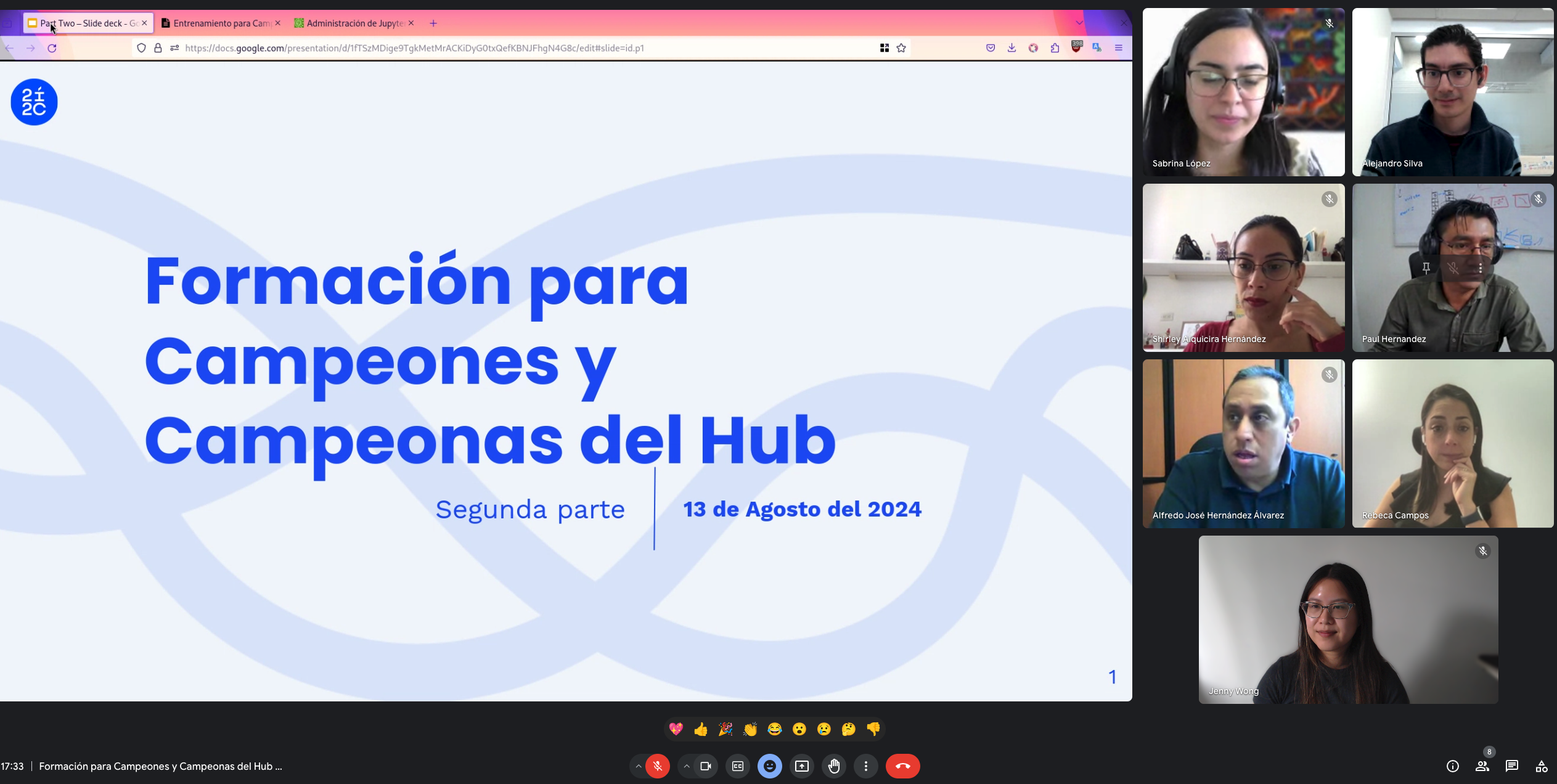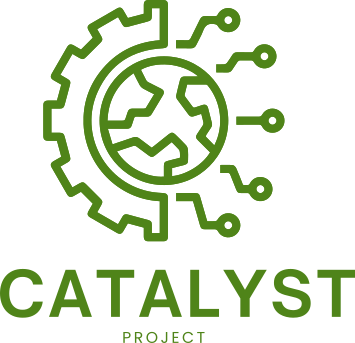Hub Champion Training Reflections#

Participants of the Hub Champion Training Workshop (Spanish Version)#
We’re excited to share some reflections from our Hub Champion Training program delivered to partner communities of The Catalyst Project! This program aims to provide new Hub Champions with the skills and tools they need to onboard their community members and help them make the best use of their 2i2c-operated JupyterHub for research and education.
The English version of the training was held earlier this year in April while the Spanish version of the training was recently delivered in August. The workshop involved two synchronous workshops, each one hour in length and a week apart. In between the two sessions, learners in the training completed self-guided study assignments, with asynchronous support from the instructors: Jenny Wong (2i2c) led the English version and Alejandro Silva (CCAD, secondee at 2i2c) led the Spanish version.
Learning outcomes#
During the Hub Champion Training program, learners were provided with the tools and knowledge to:
explain how interactive cloud computing can empower their user community
control user authentication and access to their hub
promote the use of cloud resources responsibly to maximise efficiency and minimise carbon emissions
apply software environments through containerization
navigate the filesystem and transfer data and code to and from the hub
provide user support and troubleshoot common issues
For more information on the lesson curriculum, check out the Hub Champion Training website.
Participation and engagement#
13 out of 19 partner communities took advantage of the training program. Given how globally distributed these communities are, and the incompatibility of their respective time zones, scheduling synchronous sessions was a challenge. We accommodated this by splitting the program into English and Spanish versions that were time-zone friendly for African and Latin American communities, respectively.
To facilitate accessibility and inclusion we decided to record all synchronous sessions. There were often times when participants would drop out of video calls due to poor internet connections, and on occasion, last-minute scheduling conflicts would crop up. Learners were appreciative of having a video recording to refer back to in the future; this also helped mitigate the cognitive load of learning in a non-native language.
Lessons learned#
For the Spanish version of the training, we translated the lesson content. This helped with accessibility and made it easier for learners to follow the lessons in their native language. We used a third-party translation service called Crowdin, which allowed us to turn around translated content quickly. The overall experience was very positive, and one of the lessons we learned is that Spanish translations of technical topics are hard! Technical phrases such as “upstreaming open-source developments” were difficult to contextualise. Domain knowledge and language expertise from Catalyst Project Core Team members MetaDocencia and CCAD were crucial for the proofreading stage.
Learners were also expected to undertake a significant portion of the course at their own pace. A collaborative note-taking document (CodiMD) was used to write down answers to exercises. However, this tool may not have been the best way to maintain engagement and it was difficult to measure progress. Another option for the future could be to use a Learning Management System (LMS) like Moodle to provide a more structured experience and feedback on progress.
Final thoughts#
We are super pleased with how well the learners improved their JupyterHub administration skills with the Hub Champion Training and we hope that they will continue to benefit from The Catalyst Project with the follow-up Train the Trainer course organised by The Carpentries together with MetaDocencia, and the Open Seeds Program offered by OLS.
We acknowledge the incredible support of Toby Hodges (The Carpentries) for providing the framework for designing this lesson with their Collaborative Lesson Development Training and invaluable support from Sabrina López (MetaDocencia) and Alejandro Silva (CCAD, secondee at 2i2c) to deliver the Spanish version of this lesson, as well as our wonderful community partners for participating in The Catalyst Project. We are also grateful to The Chan-Zuckerberg Initiative for the financial support.
